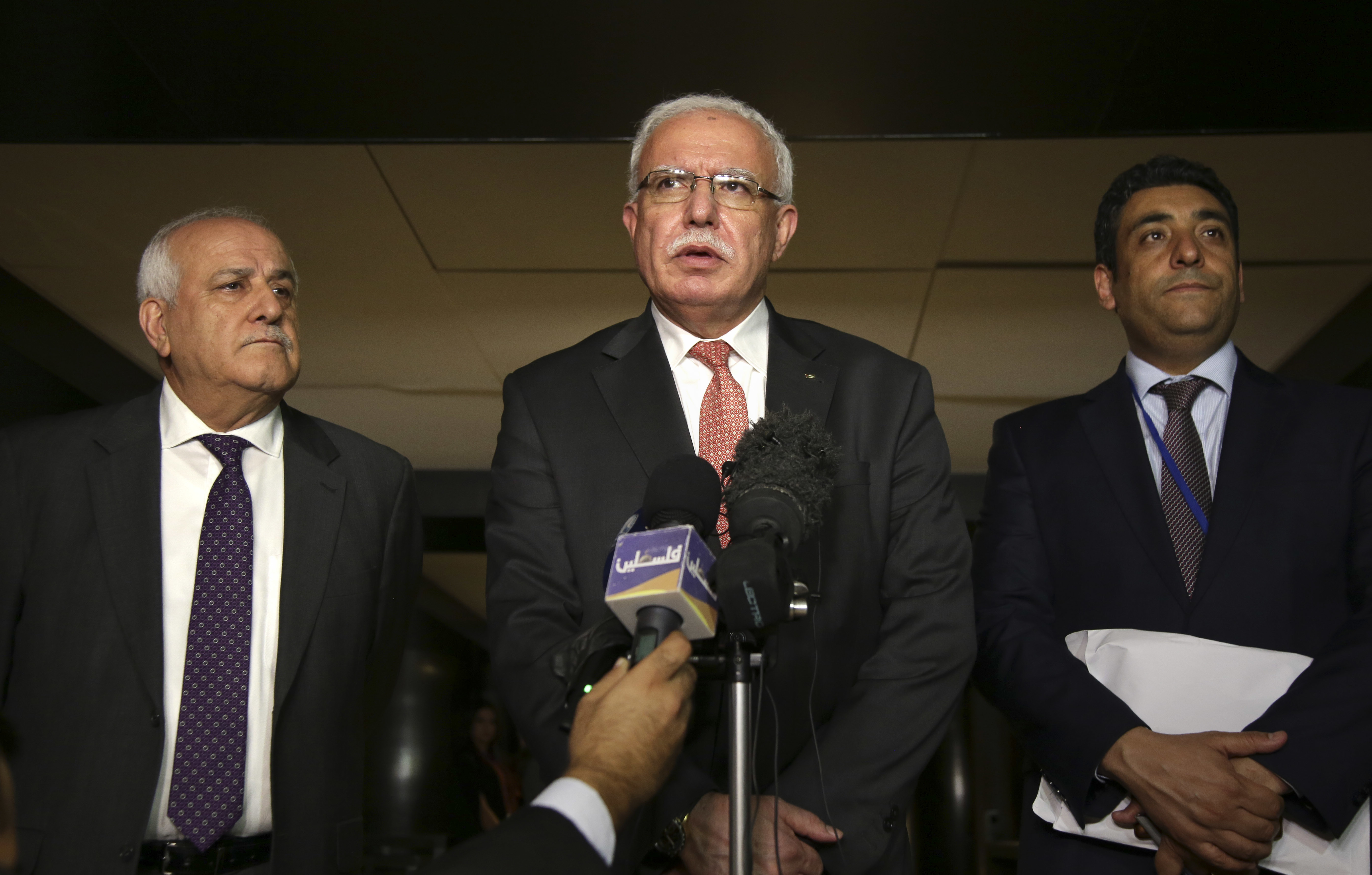
Israeli and Palestinian leaders prepared Thursday to take center stage within an hour of each other at the U.N. General Assembly.
Their speeches come a day after Donald Trump suggested for the first time as U.S. president that he “liked” a two-state solution as the most effective way to resolve their conflict.
Also on the docket at the U.N.: a Security Council meeting chaired by the American secretary of state that will focus on North Korea and its nuclear program.
Trump made his comments Wednesday while meeting with Israeli Prime Minister Benjamin Netanyahu.
Trump told reporters he believes that two states — Israel and one for the Palestinians — “works best.” He has been vague on the topic, suggesting he would support whatever the parties might agree to, a message he also recapped Wednesday.
“If the Israelis and Palestinians want one state, that’s OK with me. If they want two states, that’s OK with me. I’m happy if they’re happy,” he said.
Hours before Netanyahu was scheduled to speak at the U.N. on Thursday, Israel’s defense minister expressed indifference to Trump’s remarks, saying that the Israeli interest is “a safe Jewish state.”
Avigdor Lieberman said a Palestinian state “simply doesn’t interest me.”
Netanyahu has in the past reluctantly accepted the concept of Palestinian statehood but has since backtracked. A top coalition partner is threatening to topple his government if it returns to the agenda.
The two sides in one of the world’s most high-profile and volatile conflicts are always forceful voices at the U.N. and its annual General Assembly meeting of world leaders, but their leaders are speaking Thursday after a particularly eventful year in their relations.
The Islamic militant group Hamas that rules Gaza has led protests for months along the border with Israel, aiming partly to draw attention to the Israeli-Egyptian blockade imposed after Hamas took control of Gaza in 2007.
Some 137 Palestinians, mostly unarmed, have been killed by Israeli fire since the border protests began on March 30. During that time, a Gaza sniper killed an Israeli soldier.
Hamas and Israel came close to serious conflict earlier this summer as violence soared along the border. Gaza militants bombarded southern Israel with mortars and rockets, and Israel struck Hamas targets in Gaza.
Israel says it is defending its border against attempts by Hamas, a militant group that sworn to its destruction, to infiltrate and carry out attacks. But Israel has faced heavy international criticism over the large number of unarmed protesters who have been killed or wounded.
Israel has also been struggling to deal with near-daily fires caused by kites and balloons rigged with incendiary devices launched by Palestinians in Gaza. The blazes have destroyed forests, burned crops and killed wildlife.
Egyptian mediated cease-fire talks have hit a deadlock, and Hamas is now intensifying its campaign with more protests.
Palestinians were infuriated, and many Israelis thrilled, by a series of decisions Trump has made within the last year, starting with his recognition of Jerusalem as Israel’s capital. The Palestinians also claim the holy city as the capital of an eventual state. Earlier this year, Trump followed up on the recognition by moving the U.S. Embassy in Israel from Tel Aviv to Jerusalem, a step that was widely protested by Palestinians and others in the Arab world.
His administration has also slashed aid to the Palestinians by hundreds of millions of dollars and ended U.S. support for the U.N. agency that helps Palestinian refugees.
The World Bank warned Tuesday that Gaza’s economy is in “free fall,” with a 6-percent contraction in the first quarter of this year and unemployment standing at over 50 percent. A report from the bank urged Israel and the international community to take action to avoid “immediate collapse.”
It attributed the downturn to a combination of factors, including Israel’s decade-long blockade of the Hamas-controlled territory, budget cuts by the rival Palestinian Authority and a reduction in international aid, particularly from the U.S.
Other leaders scheduled to speak at the General Assembly Thursday include EU Council President Donald Tusk and Haiti’s President Jovenel Moise.
In opening Thursday’s session, Lithuania’s president assailed world leaders for being “too quiet, too passive, too ignorant” in the face of abuses, corruption and inequality, and took a dig at Trump’s America-first vision.
“We cannot let the voice of nationalism and division win over dialogue and cooperation,” said Lithuanian President Dalia Grybauskaite.
Much of the attention at the international community’s most prominent gathering has been focused on Trump, whose brash behavior and boastful address on Tuesday provoked laughter and headshakes from other leaders. On Wednesday, he chaired a Security Council meeting on nonproliferation of nuclear, chemical and biological weapons and fired off more tough words at Iran.
Trump also made waves by accusing China of meddling in November’s U.S. elections. China denies any interference.
___
Associated Press writer Ian Deitch in Jerusalem contributed to this report.




